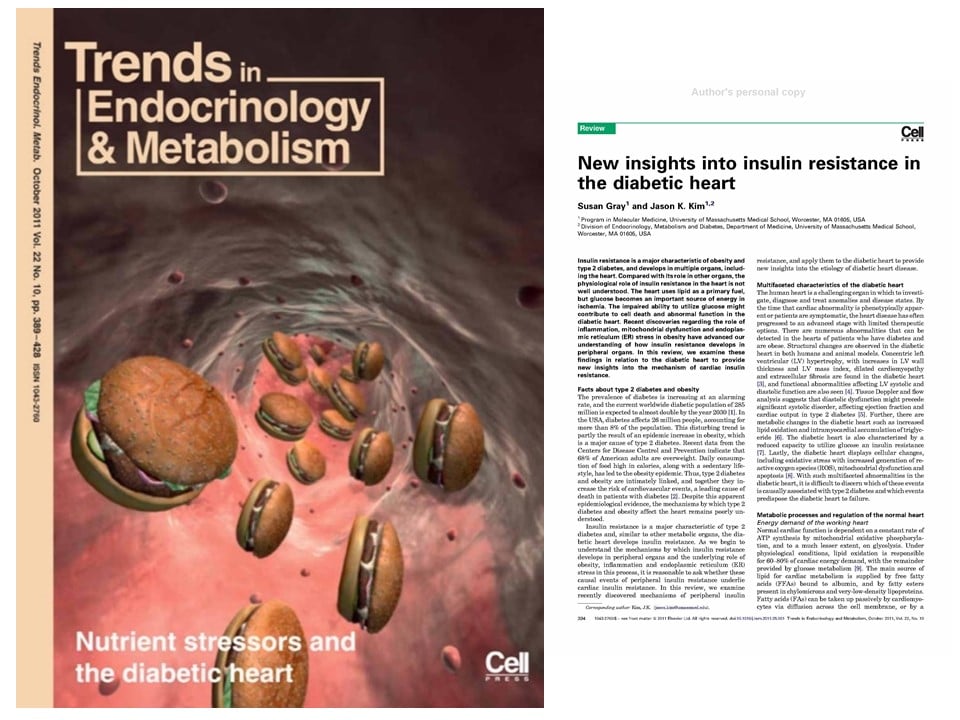Diabetic Heart Disease Projects with Dr. Jason Kim at UMass Chan Medical School
Effects of Excess Nutrient on Intracellular Oxidative Stress and Insulin Resistance in Heart
We were the first to demonstrate that diet-induced obesity causes myocardial inflammation and affects key metabolic signaling processes, suggesting a possible role of inflammation in diabetic heart disease (Ko, H.J. et al., Diabetes 2009;58:2536-2546 and Gray, S. et al. Trends in Endocrinology and Metabolism 2011;22:394-403; Cover Article). We have also found that diet-induced obesity causes insulin resistance in the heart with defects in myocardial insulin signaling and glucose metabolism. Based on these findings, we have recently generated mice with heart-selective deletion of the c-Jun kinase (JNK), GRP78, and uncoupling protein (UCP) to determine the role of excess lipid oxidation and ER stress in myocardial inflammation and insulin resistance in obesity. Using these cardiac mouse models and in vivo imaging system to assess cardiac function and structure, we are continuing to identify new molecular pathways by which obesity affects myocardial metabolism and causes diabetic heart disease.

Role of ER Stress and Inflammation in Myocardial Metabolism and Diabetic Heart Disease
We were the first to demonstrate that diet-induced obesity causes myocardial inflammation and affects key metabolic signaling processes, suggesting a possible role of inflammation in diabetic heart disease (Ko, H.J. et al., Diabetes 2009;58:2536-2546 and Gray, S. et al. Trends in Endocrinology and Metabolism 2011;22:394-403; Cover Article). We have also found that diet-induced obesity causes insulin resistance in the heart with defects in myocardial insulin signaling and glucose metabolism. Based on these findings, we have recently generated mice with heart-selective deletion of the c-Jun kinase (JNK), GRP78, and uncoupling protein (UCP) to determine the role of excess lipid oxidation and ER stress in myocardial inflammation and insulin resistance in obesity. Using these cardiac mouse models and in vivo imaging system to assess cardiac function and structure, we are continuing to identify new molecular pathways by which obesity affects myocardial metabolism and causes diabetic heart disease.
Affiliated Centers
Diabetes Center of Excellence at UMass Chan Medical School
Metabolic Disease Research Center